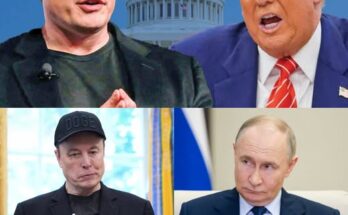Even if they knew it was coming, EU diplomats had never expected the situation to move so fast

On the Wednesday preceding Valentine’s Day, U.S. President Donald Trump engaged in a significant 90-minute phone conversation with Russian President Vladimir Putin, aiming to assess and potentially mend the strained U.S.-Russia relationship amidst the ongoing conflict in Ukraine. This dialogue occurred as U.S.-supplied missiles targeted Russian oil depots, and Russian forces continued their aggressive operations in Ukraine.
Initiation of Peace Negotiations
Following the call, President Trump announced on his Truth Social platform that both leaders had agreed to commence immediate negotiations to halt the hostilities in Ukraine. He stated, “We both agreed we want to stop the millions of deaths taking place,” emphasizing a mutual desire to end the conflict. The President also mentioned that teams of negotiators from both nations would begin work “immediately” to facilitate this process
Scope of the Discussion
Beyond the primary focus on Ukraine, the conversation encompassed a range of topics, including artificial intelligence, the strength of the U.S. dollar, and various global issues. President Trump described the call as “lengthy and highly productive,” highlighting a shared commitment to addressing pressing international concerns collaboratively.
Reactions from Ukraine and European Allies
The direct communication between President Trump and President Putin has elicited apprehension among European allies and Ukrainian officials. There is a prevailing concern that such bilateral discussions might sideline Ukraine and other stakeholders, potentially leading to agreements that do not fully consider their interests. Ukrainian President Volodymyr Zelensky emphasized the necessity of including Ukraine in any peace negotiations, stating that discussions about Ukraine’s future should not occur without its direct involvement
Implications for U.S. Foreign Policy
This development signifies a notable shift in U.S. foreign policy, moving from a stance of isolating Russia to engaging directly in negotiations. While the prospect of peace is welcomed, the approach has raised questions about the potential consequences for international alliances and the geopolitical balance. The situation remains dynamic, with diplomatic efforts continuing to evolve in pursuit of a resolution to the conflict.


